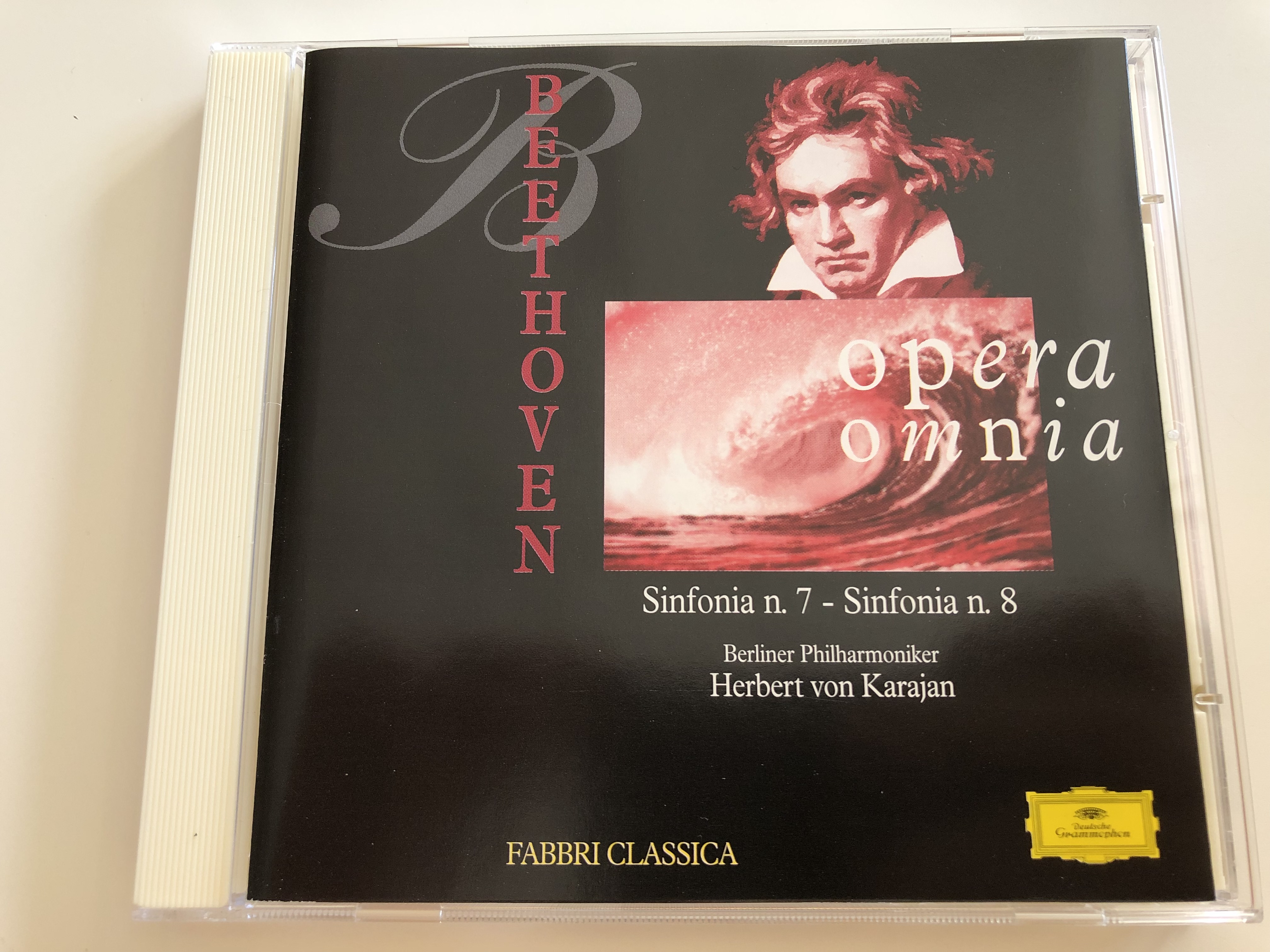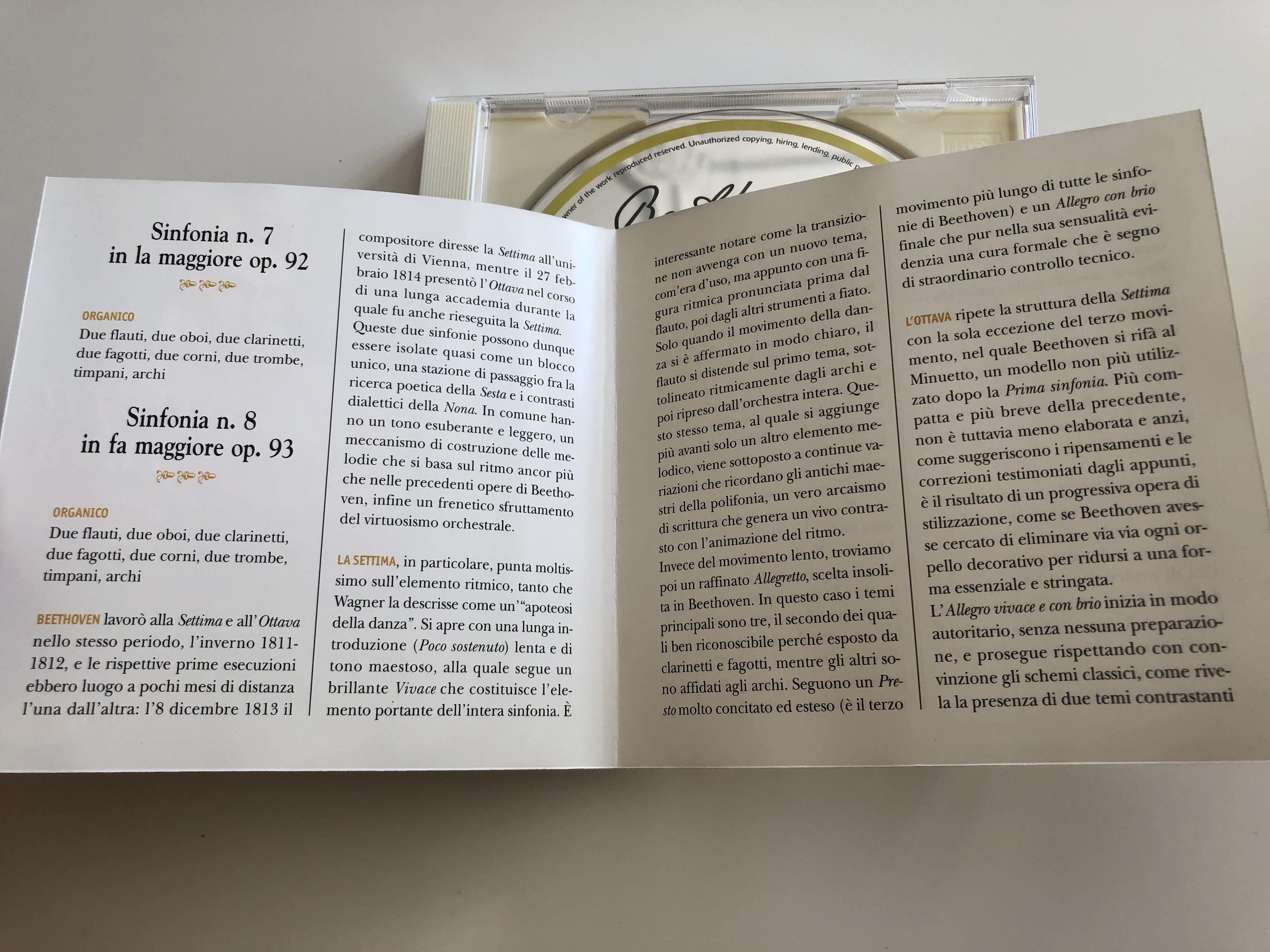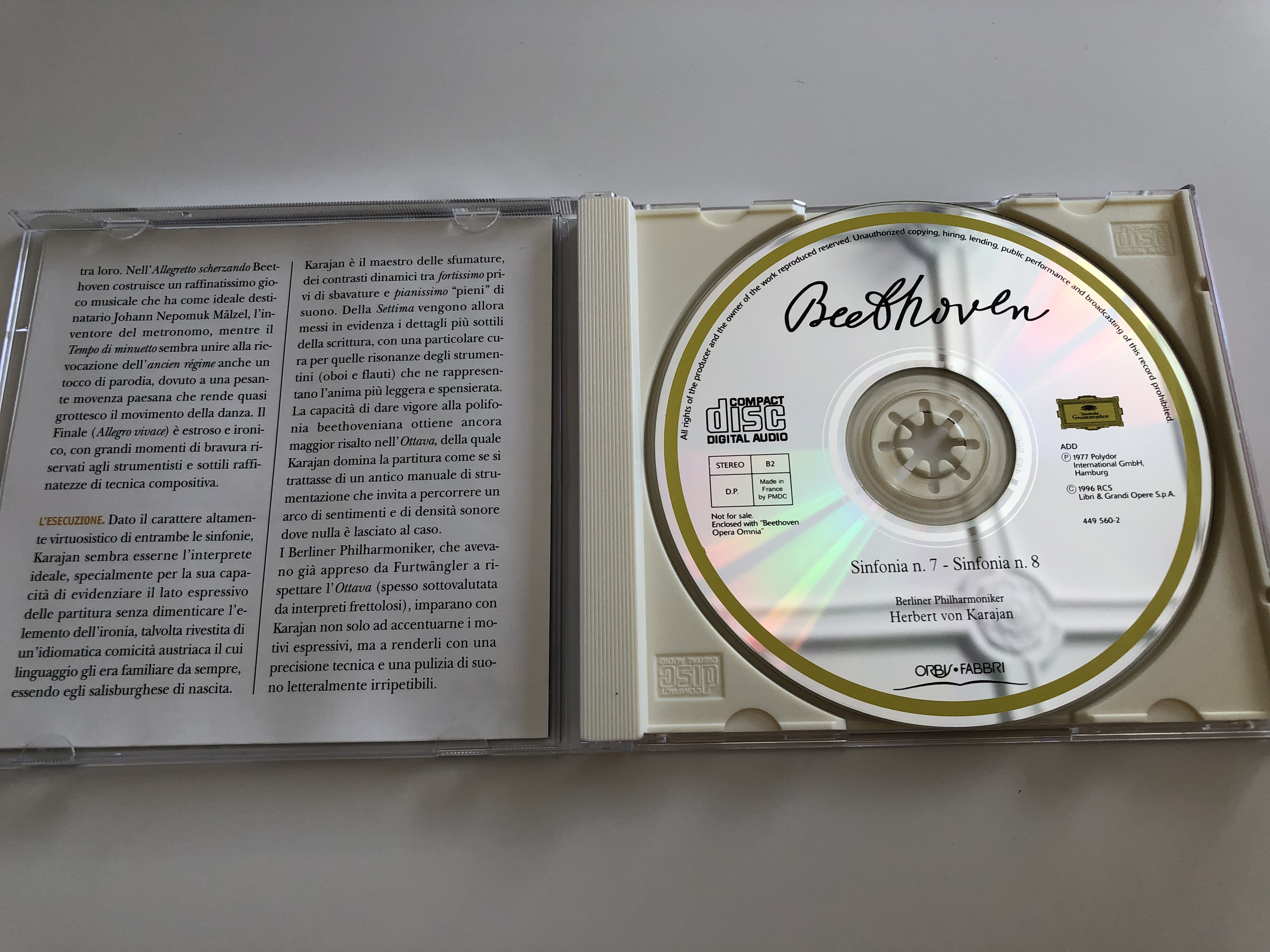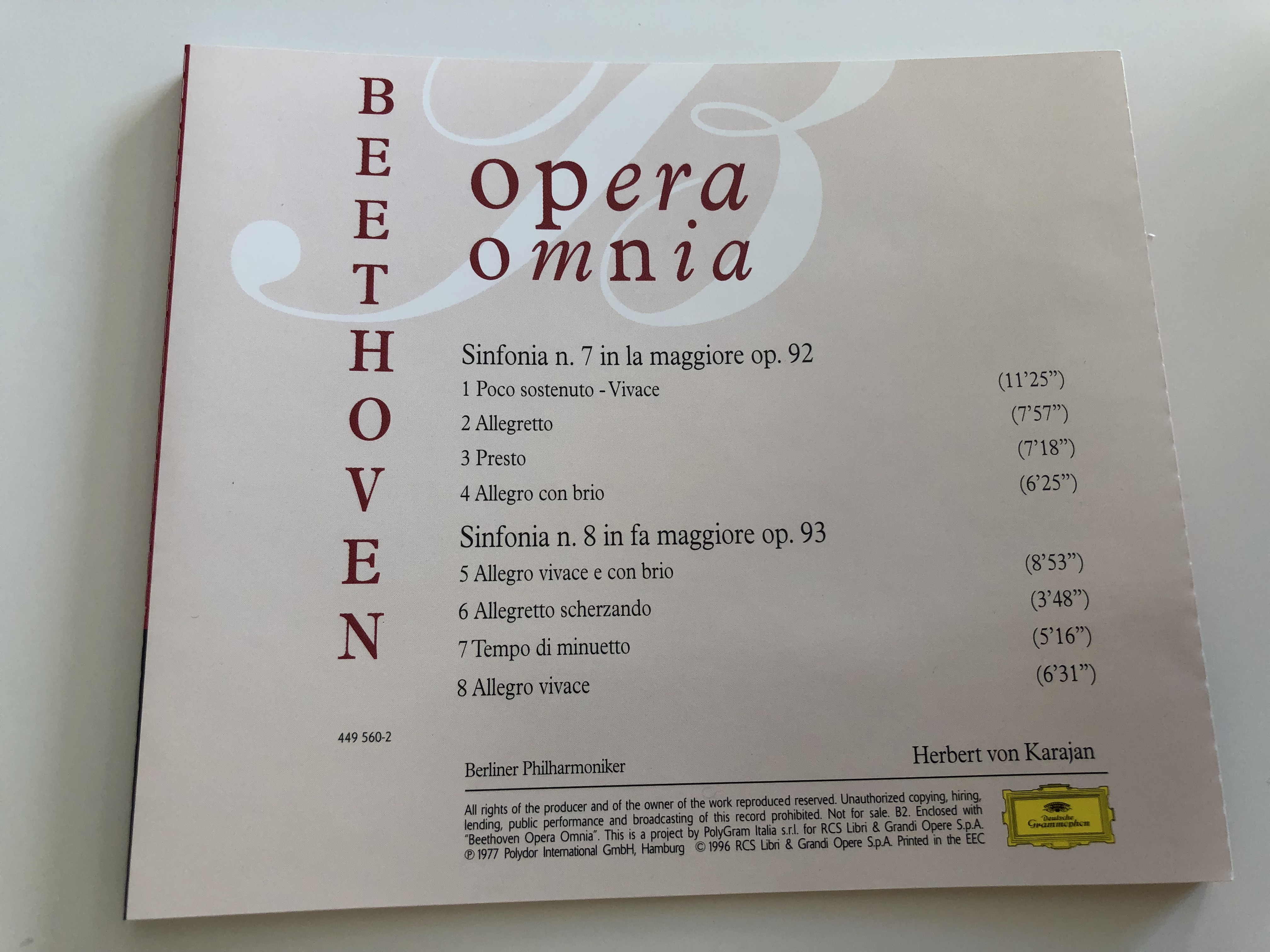Description
Beethoven Opera Omnia
Sinfonia n. 7 - Sinfonia n. 8
Berliner Philharmoniker
Herbert von Karajan
Fabri Classica
AUDIO CD 1996 ADD
UPC 5999881753011
Tracklist:
Sinfonia n. 7 in la maggiore op. 92
1. Poco sostenuto - Vivace 11:25
2. Allegretto 7:57
3. Presto 7:18
4. Allegro con brio 6:25
Sinfonia n. 8 in fa maggiore op. 93
5. Allegro vivace e con brio 8:53
6. Allegretto scherzando 3:48
7. Tempo di minuetto 5:16
8. Allegro vivace 6:31
Ludwig van Beethoven baptised 17 December 1770 – 26 March 1827) was a German composer and pianist. A crucial figure in the transition between the Classical and Romantic eras in classical music, he remains one of the most recognised and influential of all composers. His best-known compositions include 9 symphonies; 5 piano concertos; 1 violin concerto; 32 piano sonatas; 16 string quartets; a mass, the Missa solemnis; and an opera, Fidelio. His career as a composer is conventionally divided into early, middle, and late periods; the "early" period is typically seen to last until 1802, the "middle" period from 1802 to 1812, and the "late" period from 1812 to his death in 1827.
Beethoven was born in Bonn, then the capital of the Electorate of Cologne and part of the Holy Roman Empire. He displayed his musical talents at an early age and was taught by his father Johann van Beethoven and composer and conductor Christian Gottlob Neefe. At the age of 21 he moved to Vienna, where he began studying composition with Joseph Haydn and gained a reputation as a virtuoso pianist. He lived in Vienna until his death. By his late 20s his hearing began to deteriorate and by the last decade of his life he was almost completely deaf. In 1811 he gave up conducting and performing in public but continued to compose; many of his most admired works come from these last 15 years of his life, commonly known as his "late" period.
Herbert von Karajan: born Heribert Ritter von Karajan; 5 April 1908 – 16 July 1989) was an Austrian conductor. He was principal conductor of the Berlin Philharmonic for 35 years. Generally regarded as one of the greatest conductors of the 20th century, he was a dominant figure in European classical music from the mid-1950s until his death. Part of the reason for this was the large number of recordings he made and their prominence during his lifetime. By one estimate he was the top-selling classical music recording artist of all time, having sold an estimated 200 million records.
























